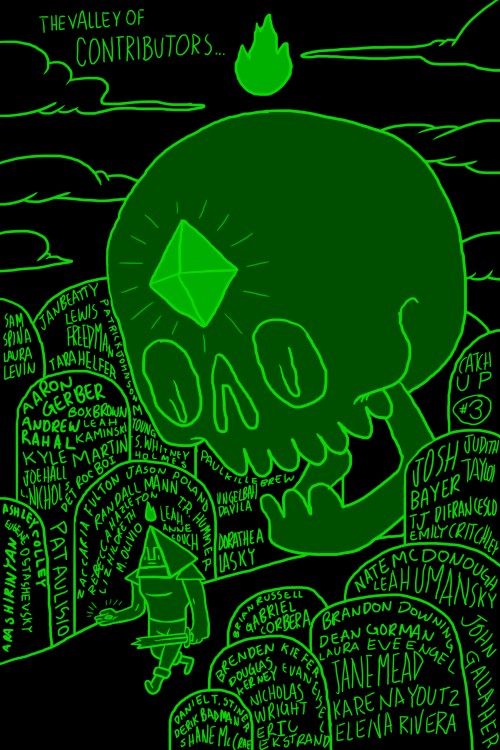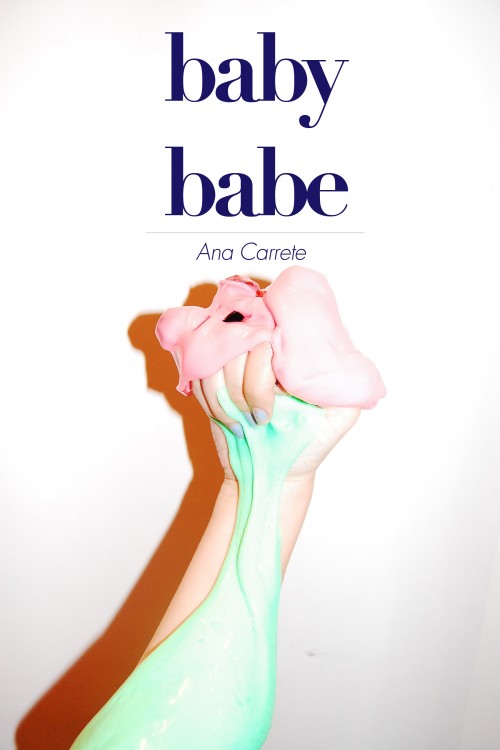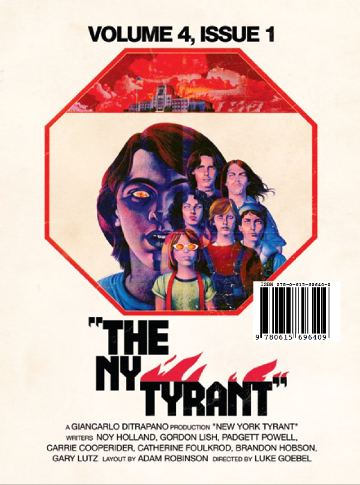Catch Up Issue 3 is available for preorder. You can read/hear work from past contributors in their rad Bonus Round. Brought to you by the hard working folks at Gold County Paper Mill.
Poetry Is Dead, I Killed It.
Poetry Is Dead, I Killed It. from Mathew Timmons on Vimeo.
Poetry Is Dead, I Killed It.
Insert Blanc Press insertblancpress.net
Movie by Nick Flavin, Ben Rodkin, & Mathew Timmons.
Sound recorded by Sonia Parada.
Featuring Vanessa Place & Ben White.
Also appearing: Amanda Ackerman, Mashinka Firunts, Danny Snelson, Joy Decena, Teresa Carmody, Harold Abramowitz, Jackqueline Frost, Kim Calder, Andrea Quaid, Suzanne Adelman, Christopher Russell, Greg Curtis, & Stephen Van Dyck.
Here, as part of a larger feature on “Book Blogs.” (The review is by Matthew Vollmer.)
(To read the whole thing, you need Project Muse access, but even without it you can read some of the thing.)
(The feature was edited by Brian Carr, and includes reviews of NewPages and The Rumpus and The Millions and Big Other and The Nervous Breakdown and Bookslut and The Barking and MobyLives. Also, one of those reviews is by Mike Meginnis, and one is by Roxane Gay.)
“We’ve made the future redundant, and therein lies the danger.” — Gonçalo M. Tavares
October 18th, 2012 / 12:33 am
I read Benjamin Anastas’s novel An Underachiever’s Diary a while back and liked it. I read these Salon and Daily Beast excerpts from his new memoir Too Good to Be True today and I feel profoundly anxious about money, relationships, and–most of all–writing as a career.
25 Points: Last Exit to Brooklyn
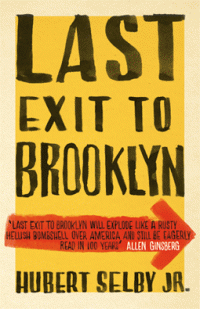 Last Exit to Brooklyn
Last Exit to Brooklyn
by Hubert Selby Jr.
Grove Press, 1964
320 pages / $7.95 buy from Powell’s
1. Finished on C train from Bronx to Bed-Stuy.
3. People of Last Exit (they are people, not so much characters): pimps, widows, trannies, fairies, strikers, scabs, bullies, gang members, factory workers, MPs, doggies, fathers, policemen, mothers, prostitutes, sons, convicts, daughters, addicts, the confused, the disadvantaged, the struggling, everyone poor, everyone violent in some way. No one this reviewer knows is violent.
5. “She tilted her head toward the radio and listened to the hard sounds piling up on each other, yet not touching, wanting to hold Vinnies hand, the strange beautiful sounds (bennie, tea and gin too) moving her to a strange romance where love was born of affection, not sex; wanting to share just this, just these three minutes of the Bird with Vinnie, these three minute sour of space and time and just stand together, perhaps their hands touting, not speaking, yet knowing…just stand complete with and for each other not as man and woman or two men, not as friends or lovers, but as two who love…these three minutes together in a world of beauty, a world where there wasnt even a memory of johns or punks, butch queens or Arthurs, just the now of love…” Note: Ellipses are in text, not of this reviewer’s hand.
7. People drink beer or gin. Whisky is not overly mentioned.
8. “A cigarette only takes a certain amount of time to smoke and though this takes time it seems to take less and less with each one and you can only smoke so many, there comes a time when you have to stop, when you just cant light the next one…at least not for awhile.”
9. People bump into corners of desks on accident. Then they move on.
10. Last Exit was first published in 1957. Selby was 29. He died in 2004. The year today is 2012. READ MORE >
October 17th, 2012 / 9:11 am
Ana Carrete’s “Baby Babe”
I want to trumpet the arrival of Ana Carrete‘s debut book of poetry and drawings, Baby Babe, published by Civil Coping Mechanisms next month.
What to expect? Ana’s poetry plays with words. Her poems play with themselves. That sexual double-entendre is appropriate and typical of her work. The word “come” is always euphemistic in Ana’s poetry. Sex is on the brain, and the brain is a clever, punning, playing one, with a wry sense of humor. The twenty-five-year-old girl-woman who writes these poems is rarely without her sense of humor, even when it’s grim.
October 16th, 2012 / 10:06 pm
DIED: Keith Campbell

On October 5, Keith Campbell—one of the scientists who worked on Dolly the sheep, the first mammal cloned from an adult cell—died at the age of 58.
Adult cells have specialized jobs. They make one thing—skin, for example. Embryonic cells are not specialized. So, making an entire body from an embryonic cell is relatively easy. Making an entire body from a specialized cell is not. Campbell suggested trying to find a way to get adult cells to revert, to forget their specialization. Starving the adult cell did the trick. Dolly followed.
Some people call cloning “playing God.” Mostly, those people are talking about human cloning, not animal cloning.
But, still, Dolly caused a stir. And accusations of playing god. READ MORE >
25 Points: The Killer Inside Me
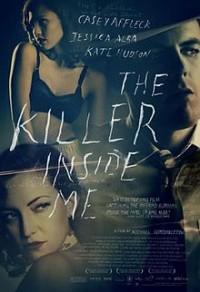 The Killer Inside Me
The Killer Inside Me
by Jim Thompson
Vintage, 1991
256 pages / $14.95 buy from Powell’s
1. Lou Ford is a small town sheriff who kills people in extremely gruesome ways (though the language chosen to describe it is subdued).
2. He strikes everyone in town as a moron, and somehow when he starts killing this makes it all the more irksome.
3. Stanley Kubrick called it “probably the most chilling and believable first-person story of a criminally warped mind I have ever encountered.” And he was correct.
4. The novel’s author, Jim Thompson, was known as Dimestore Dostoyevsky, which is also correct.
5. Lou Ford takes a lot of baths and reading this in a hot bathtub is very difficult.
6. Jim Thompson is one of the most intriguing figures to ever write a story about a killer and—unlike most—he does it best in the first person.
7. The ending will probably make you wish you were still in the thick of the narrative, which is either a sign of the novel’s excellence or an observation that ending something this strange and unconventional is not-fucking-easy.
8. Lou Ford takes to bashing around a hooker named Joyce Lakeland, who likes it a great deal and encourages him to keep coming back.
9. Casey Affleck stars in a film rendition of this book that recently came out and although it’s pretty spot on I think you’ll find when reading that some things just cannot translate.
10. Though the convention of the cops being on the killer’s tail plays a part in this book you’re hardly on the edge of your seat wondering about the morality being discussed here; this is, more than anything, a work of art by an artist before it is a poorly-crafted slice of genre fiction. READ MORE >
October 16th, 2012 / 9:09 am
blurbing every story in the new New York Tyrant
I wrote a blurb for every story in the new issue of New York Tyrant.
Luke Goebel guest-edited this issue and dedicated it to his brother, who passed away last year. The quality of the writing in here is killer. Sometimes when a journal has so many big names it’s all b-sides. But everybody brought it. Also, most of these pieces contend in some way with the dual burdens of the physical body and family, so the issue as a whole feels like a unified fantasy of escape from a packed boiler room.
Also there is a release party this Friday at KGB Bar in NYC. There will be an open bar from 8-10 PM and no readings.
OK…the blurbs:
“Amber, Freckled” by Cooper Renner
Renner’s terse prose dissolve the notion of the fixed self in a surreal, genderless kitchen. Kill your family.
“Clyde Roy” by Brandon Hobson
Whose body is this? That is the question Clyde Roy and so many of us face. Readers who want out of themselves will identify with this story. Kill your family.
untitled drawing by Atticus Lish
On looseleaf paper, Lish portrays a baby who gives his mother more sexual pleasure than her husband. Kill your husband.

